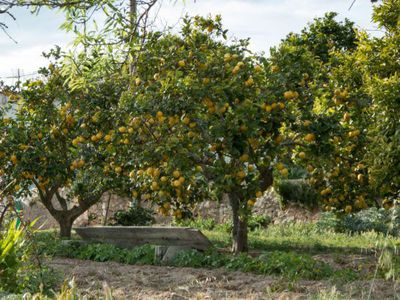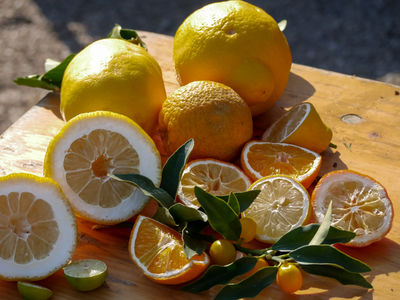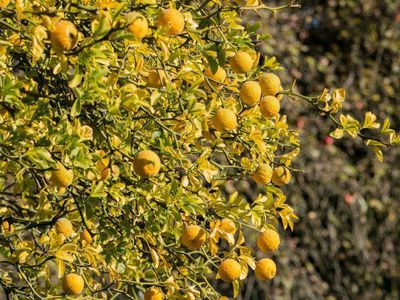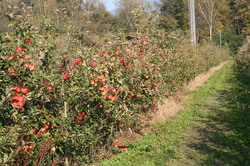Citrus plants
Citrus plant production with Switrus® and Citrobella® young plants

The incredible diversity of the different Citrus species and the sheer endless number of varieties are simply impressive. From the original Citrus species C. aurantifolia (limes), C. maxima (grapefruit), C. medica (citron), C. reticulata (mandarin orange), the species and varieties known today have developed over several generations of mankind. Most people who hear the name 'citrus' may first think of the lemons and oranges that we know mainly from the winter months.
From now on, we want to make...
Read moreLubera® Citrobella® - the simple citrus assortment for container cultivation – robust, but not hardy

In addition to the hardy lemons, we have also decided to include non-hardy but nevertheless cold-tolerant lemon varieties or species in the range. These lemons are cultivated in the home garden as classic container plants and require a cool but frost-free and bright location for overwintering, as they are also evergreen plants. As already described at the beginning, these varieties/species also have a certain tolerance to slightly negative temperatures. For the hobby gardener, this means that...
Read moreSwitrus® – The hardy citrus young plants!

There is hardly any other plant that reflects the Mediterranean attitude to life as strongly as the lemon and citrus plants in general. Just think of the Amalfi lemons that grow along the Italian coast of the same name. If you also want to enjoy lemon plants north of the Alps, you have few options. On the one hand, you have to visit a botanical garden or grow your own container plants in your garden, with all the burdens and worries that it entails. For example, the correct and frost-free...
Read moreWhy do we breed new varieties?

What, another new variety? We often hear such and similar remarks. And they are not completely unfounded. We are currently propagating no less than 70 varieties of raspberry. However, the (too) large number is rather due to the fact that we do not succeed in simply abandoning old varieties, as there is still a stable demand for them. This observation also suggests that we should take a closer look at the subject of “new varieties”.
Read moreFrom Plant Breeding To Mass Propagation Of Young Plants
Frederik Vollert from Lubera Edibles explains all about the advantages of mass propagation, why they do this and how this works for the Lubera Edibles Range.
'Lubera Edibles' is the young plant division of Lubera, it provides a large selection of delicious fruit varieties to growers. The companies of Robert Mayer and Lubera have joined forces to develop the new plants at Lubera which are then coordinated with the product development and in-vitro propagation at Mayer.
Read more
Our assortment of 'edible' young plants

As the new company name, Lubera Edibles®, already suggests, we are expanding our range of young plants from classic soft fruits, such as raspberries, blackberries or blueberries, to anything that can be consumed in any way. This includes edible fruits like kiwis, apples and pears. Or edible roots such as horseradish, Jerusalem artichoke or potato. But also edible leaves, petioles, flowers such as sea kale, tea or rhubarb. We would like to introduce our most important groups of crops in the...
Read more